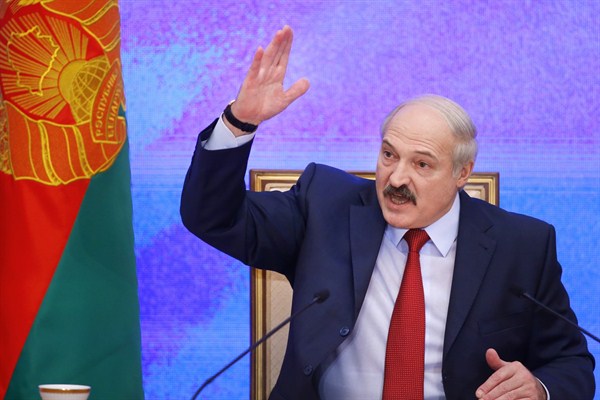Belarus will hold a presidential election on Oct. 11, but one needn’t bother staying up for the result: The incumbent, Alexander Lukashenko, Europe’s so-called last dictator, traditionally claims 80 to 90 percent of ballots, with the result fixed both beforehand by mass early voting and afterward via a completely invisible counting process.
But in a region gripped by the turmoil caused by Russia’s proxy war in Ukraine, Belarus’ election still matters.
Lukashenko has been in power since 1994. The last election in 2010 culminated in mass protests against election fraud and almost 700 arrests. That isn’t likely to be the scenario this time, but the reason has more to do with the opposition’s fear of the Kremlin than with any political liberalization at home.

